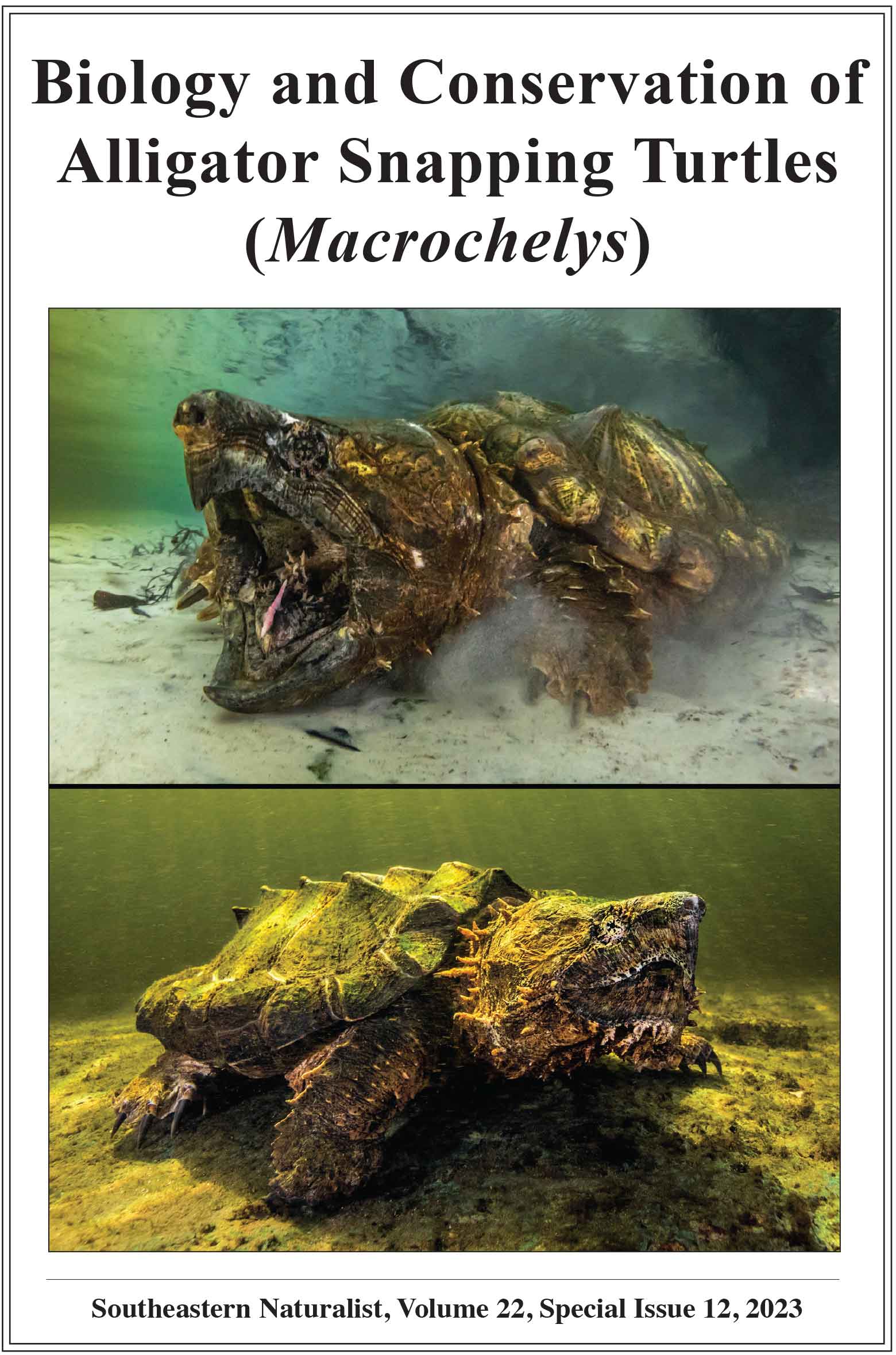American Black Bears Depredate American Alligator Nests in South Florida
Darcy Doran-Myers1,*, Mark Parry2, Sean M. McHugh3, Matthew McCollister4, Brian K. Scheick5, and Shelby Shiver5
1Department of Wildlife Ecology and Conservation, University of Florida, Gainesville, FL 32611. 2South Florida Natural Resource Center, National Park Service, Homestead, FL 33034. 3Habitat and Species Conservation, Florida Fish and Wildlife Conservation Commission, Immokalee, FL 34142. 4National Park Service, Big Cypress National Preserve, Ochopee, FL 34141. 5Fish and Wildlife Research Institute, Florida Fish and Wildlife Conservation Commission, Gainesville, FL 32601. *Corresponding author.
Southeastern Naturalist, Volume 22, Issue 3 (2023): N58–N66
Abstract
Ursus americanus (American Black Bear) and Alligator mississippiensis (American Alligator) are sympatric in areas of Florida. During summer, alligators build nest mounds for eggs on freshwater shores, shallow marshes, and tree islands. Biologists have speculated that bears might prey upon alligator nests because of their opportunistic and generalist diet, though such predation in Florida has not been documented in peer-reviewed literature. Herein, we report 3 photographed events of American Black Bear predation on American Alligator nests in Everglades National Park, Big Cypress National Preserve, and Dinner Island Ranch Wildlife Management Area, FL. During each event, bears dug into alligator nests and consumed egg contents. The predation events varied in duration from 36 minutes to nearly 5 hours. During 1 event, a female bear consumed alligator eggs alongside 2 cubs of the year. Future research might explore the extent and effect of nest predation on American Alligator populations and the benefits to American Black Bears.
![]() Download Full-text pdf (Accessible only to subscribers. To subscribe click here.)
Download Full-text pdf (Accessible only to subscribers. To subscribe click here.)
Access Journal Content
Open access browsing of table of contents and abstract pages. Full text pdfs available for download for subscribers.
Issue-in-Progress: Vol. 23 (3) ... early view
Check out SENA's latest Special Issue:












 The Southeastern Naturalist is a peer-reviewed journal that covers all aspects of natural history within the southeastern United States. We welcome research articles, summary review papers, and observational notes.
The Southeastern Naturalist is a peer-reviewed journal that covers all aspects of natural history within the southeastern United States. We welcome research articles, summary review papers, and observational notes.